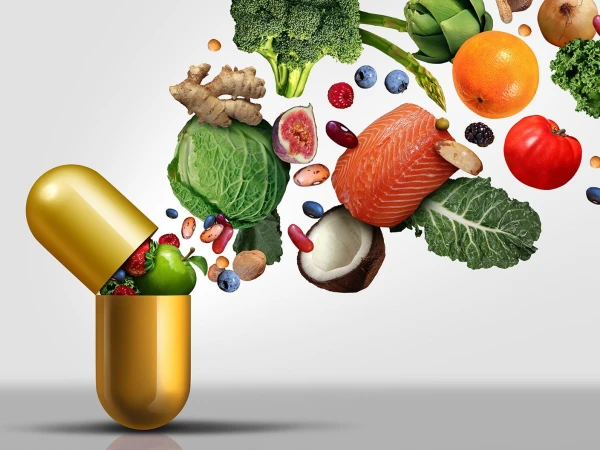Vitamin D also maintains the balance of intestinal bacteria.
Nuq4 الاحدث الأسئلة
-
یہ کھانے اعتدال سے کھائے جائیں تو نہ صرف یہ کہ نقصان دہ نہیں رہتے بلکہ انسان کو اچھی صحت پانے میں مدد دیتے ہیں
یہ کھانے اعتدال سے کھائے جائیں تو نہ صرف یہ کہ نقصان دہ نہیں رہتے بلکہ انسان کو اچھی صحت پانے میں مدد دیتے ہیں
قراءة أقل
-
چاکلیٹ میں پایا جانیوالا ایک جز اور دیگر ادویات کا نیا مرکب بیماری کی متعدد اقسام کا علاج کر سکتا ہے
چاکلیٹ میں پایا جانیوالا ایک جز اور دیگر ادویات کا نیا مرکب بیماری کی متعدد اقسام کا علاج کر سکتا ہے
قراءة أقل
-
وٹامن ڈی دل، دماغ اور پٹھوں کی صحت میں بھی کردار ادا کرتا ہے
وٹامن ڈی دل، دماغ اور پٹھوں کی صحت میں بھی کردار ادا کرتا ہے
قراءة أقل
-
Gautam Adani's closeness to Prime Minister Narendra Modi was evident since 2002 when he was the Chief Minister of Gujarat.
Gautam Adani's closeness to Prime Minister Narendra Modi was evident since 2002 when he was the Chief Minister of Gujarat.قراءة أقل
-
تقریباً 22 سال قبل مکیش امبانی اور انیل امبانی کے درمیان دولت کی تقسیم کی لمبی لڑائی ہوئی تھی
تقریباً 22 سال قبل مکیش امبانی اور انیل امبانی کے درمیان دولت کی تقسیم کی لمبی لڑائی ہوئی تھی
قراءة أقل
-
ہیمیش ریشمیا انڈین پوپ کلچر میں ایک متنازع شخصیت رہے
ہیمیش ریشمیا انڈین پوپ کلچر میں ایک متنازع شخصیت رہے
قراءة أقل
-
امریکہ نے تجارتی مذاکرات ناکام ہونے کے بعد انڈین مصنوعات پر 50 فیصد تک ٹیرف عائد کر دیا ہے
امریکہ نے تجارتی مذاکرات ناکام ہونے کے بعد انڈین مصنوعات پر 50 فیصد تک ٹیرف عائد کر دیا ہے
قراءة أقل
-
پاکستان میں کئی سوشل میڈیا صارفین انڈیا کے خلاف جوابی آپریشن کا نام ’بنیان مرصوص‘ رکھنے کی تعریف کرتے ہوئے اسے بہترین نام قرار دے رہے ہیں.
پاکستان میں کئی سوشل میڈیا صارفین انڈیا کے خلاف جوابی آپریشن کا نام ’بنیان مرصوص‘ رکھنے کی تعریف کرتے ہوئے اسے بہترین نام قرار دے رہے ہیں.
قراءة أقل



























اسلامی تعلیمات کی روشنی میں دودھ پلانے کے عالمی ہفتے کی مناسبت سے معلومات تحریر
اسلامی تعلیمات کی روشنی میں دودھ پلانے کے عالمی ہفتے کی مناسبت سے معلومات تحریر
قراءة أقل